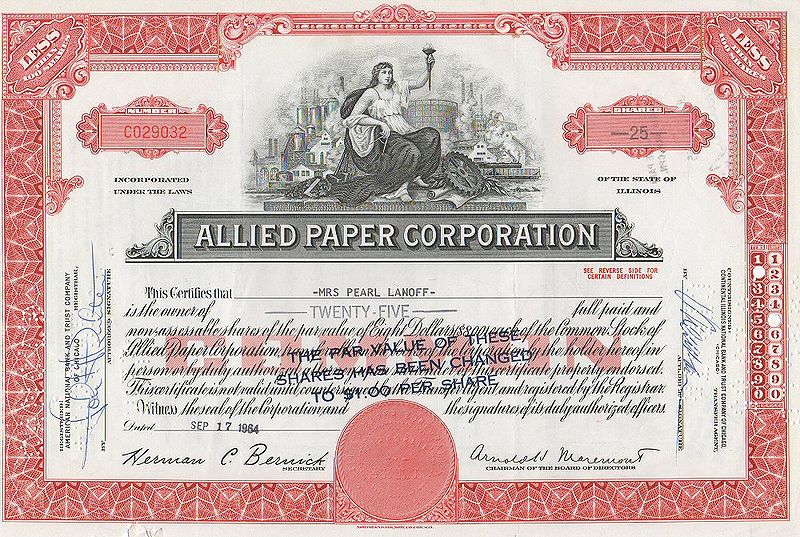NFTs—or non-fungible tokens—have been making headlines in recent months as the newest investment craze. “At a very high level, most NFTs are part of the Ethereum blockchain. Ethereum is a cryptocurrency, like bitcoin or dogecoin, but its blockchain also supports these NFTs, which store extra information that makes them work differently from, say, an ETH coin.” NFTs can be anything digital but are currently extremely popular for buying and selling digital art. Popular NFT marketplaces include OpenSea, Rarible, and Nifty Gateway, and some NFTs have been bought and sold for tens of millions of dollars. This new digital artwork platform has, unsurprisingly, sparked many intellectual property disputes. Most recently, famous…
-
-
PIERCING THE CORPORATE VEIL IN NORTH CAROLINA
In North Carolina, as in all states, a shareholder or owner of a business is generally not personally liable for the debts of the business. Additionally, Business A is generally not liable for the debts of Business B, even if the two businesses are associated entities. However, a recent North Carolina Court of Appeals decision illustrates that these limits on extended liability for corporate debts are themselves limited by the concept of piercing the corporate veil. The Court of Appeals Decision In General Fidelity Insurance Company v. WFT, Inc., et al., General Fidelity Insurance Company (“General Fidelity”) contracted with WFT, Inc. (“WFT”), for whom co-defendant Peter J. Willis…
-
INTERSAL, INC. v. SUSI H. HAMILTON, et al.: a Separate Battle over Pirates and Treasure
In another case distinct from last week’s shipwreck blog post, salvage company Intersal, Inc. (“Intersal”) seeks to overturn a decision in favor of the North Carolina Department of Natural and Cultural Resources (the “NCDNCR”), the Secretary for the NCDNCR, the State of North Carolina, and the now-dissolved non-profit company Friends of Queen Anne’s Revenge (“FQAR”). Unlike the previous blog post, which addressed alleged copyright infringement, the litigants to the instant dispute are debating the enforceability of two contracts between the parties, whether the NCDNCR breached those contracts, and whether FQAR induced NCDNCR’s alleged breach. The Permits In 1994, the NCDNCR granted two permits to Intersal to search for…
-
A Beginners Guide to Arbitration – Part 2 Pros and Cons of Arbitration
Our June 11th blog post broadly discussed arbitration and the upward trend of including mandatory arbitration clauses in agreements. This week, we analyze the pros and cons of arbitration to elucidate when arbitration clauses are useful and when they are potentially harmful. In arbitration, individuals and entities bring legal claims against one another outside the public court system. Although many aspects of arbitration are similar to a civil court trial, arbitration has a number of key differences. Pros Speed – Arbitration is generally faster than litigation. Whereas litigation often takes years, the arbitration process may only take a few months. However, arbitration can take longer when there are…
-
Think You Can Represent Yourself in Business Court? Think Again.
While it is legally permissible to represent yourself in Business Court, it probably is not a good idea as one plaintiff learned the hard way. In a recent decision from the North Carolina Business Court, a plaintiff, James Gillespie, attempted to be a pro se litigant and wound up with his case dismissed and responsible for paying much of the defendants’ legal fees. Gillespie originally retained counsel for the purpose of suing the defendants. However, his attorneys, John and James Scarbrough, filed a Consent Motion to Withdraw as counsel. The court granted this motion requiring Gillespie to retain a new attorney within four weeks. He did not make the…
-
Counterclaims: When to Designate a Case to the North Carolina Business Court
The North Carolina Business Court (“Business Court”) is a specialized forum designed to adjudicate cases involving complex and significant issues of corporate governance and commercial law. If a dispute involves one of the subject matters enumerated in North Carolina General Statute § 74-45.4, then the case shall be designated and assigned to the Business Court. Cases may also qualify for discretionary assignments to the Business Court under Rule 2.1 of the General Rules of Practice for Superior and District Courts if it does not qualify for mandatory designation but involves certain other factors. Mandatory designations are governed by…
-
North Carolina Business Court Weights in on Attorneys’ Fees in Class Action Settlements
Recent decisions by the North Carolina Court of Appeals and North Carolina Business Court (NCBC) shed light on a previously unsettled question of law: when can a North Carolina trial court award attorney’s fees as part of a class-action settlement in the absence of additional statutory authority? Long-standing precedent is that a court can award attorneys’ fees to a prevailing party when statutorily authorized to do so.[1] This practice is known as the “American Rule.” The intended purpose of the American Rule is to encourage the conservation of judicial resources by promoting settlement and discouraging unnecessarily prolonged litigation.[2] Regarding…
-
NC Business Court Rules Former President and CEO Required to Bring Derivative Suit
The North Carolina Business Court issued an order last month disqualifying the individual plaintiff’s counsel from also representing a company, Bolier & Co., LLC (“Bolier”). The individual plaintiff, Christian Plasman, ostensibly hired his lawyer on behalf of himself and Bolier despite being a minority member of the company and without authorization from its majority member.[1] Bolier’s Operating Agreement stated Decca Furniture (USA), Inc. (“Decca”) owned a fifty-five percent (55%) majority ownership in Bolier, while Plasman owned the remaining forty-five percent (45%). The Business Court ruled Plasman, as a minority member, was not authorized to bring direct claims in Bolier’s name, but must “bring such…





